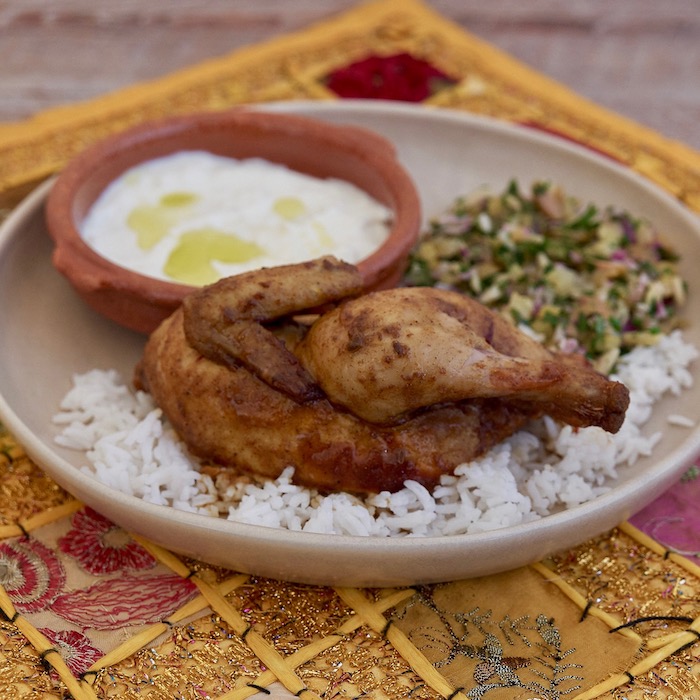

Poussins, French for chicks, are young chickens, sometimes called spatchcocks. They’re a good size to serve whole or halved, but you can also make this dish with a regular-size chicken and just increase the cooking time. I love the flavour of preserved lemon, and this delicious salata (Arabic for salad) is great with any poultry, seafood or just over rice with yoghurt. It’s easy to make your own preserved lemons and great to use every part of them; in this recipe the brine adds salt and acid to the marinade and the flesh goes into the birds’ cavities before roasting. I like to keep the Arabic influence going with the wine match, Momento Mori’s Staring at the Sun is a blend of vermentino, fiano and moscato giallo that has lovely notes of musk, orange blossom and ginger that work so well with this dish. Add a side dish of cucumber and yoghurt (tzatziki) instead of the garlic yoghurt sauce if you prefer (see video below).
Serves 4
Preserved Lemon & Herb Salata
Garlic Yoghurt Sauce
Share page on:








Ras el hanout is a Moroccan spice blend; the name means ‘top of the shop’ (or top shelf) because it’s traditionally a mixture of the merchant’s finest spices. There are as many variations as there are spice merchants, with most containing a dozen or more Ingredients and old traditional recipes even including hashish and Spanish fly!
Yes – and no. Poussin means ‘chick’ or young chicken in French. Spatchcock is a Method of preparing poultry by butterflying or flattening it, but as it’s most commonly done with young chickens it’s come to be used interchangeably with the word poussin.
Spatchcocking is a method of preparing any bird for cooking by removing the backbone and flattening it out – butterflying in other words. So quail, duck, guinea fowl, and chickens large and small, can all be “spatchcocked”. Increasingly young chickens are referred to as spatchcocks, though the French term, poussin, is also used.
Most commonly only the rind of preserved lemon is used. However the flesh can be added to the cavity of poultry for roasting and the brine makes a great addition to marinades and salad dressings.